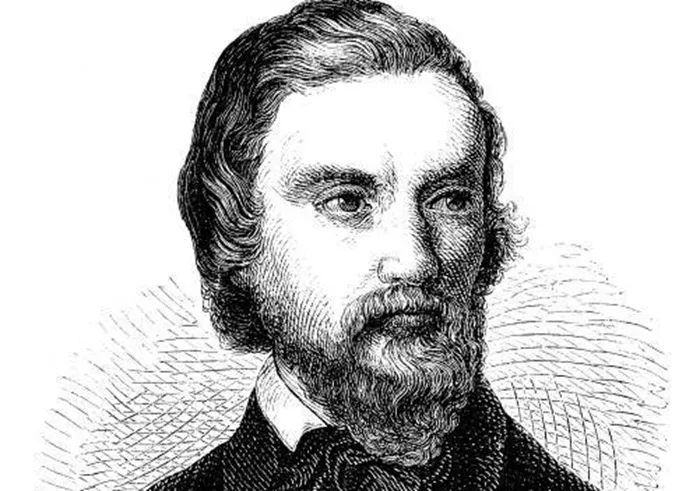The 19th century was a transformative period for German poetry, witnessing the emergence of literary movements such as Romanticism, Realism, and Naturalism. Many poets of the time sought to explore themes of nature, nationalism, and personal introspection. Among them was Eduard Duller (1809–1853), a lesser-known yet significant figure in 19th-century German poetry. While he may not be as widely recognized as contemporaries such as Heinrich Heine or Friedrich Rückert, Duller played a crucial role in shaping the literary and cultural landscape of his time. This article explores the life, works, and contributions of Eduard Duller, comparing his literary output to that of other German poets of the era to understand his place in the canon of German poetry.
Eduard Duller
Eduard Duller was born in Vienna, Austria, in 1809 to German parents. His early years were shaped by the cultural and intellectual vibrancy of the Austrian capital, which was a hub of artistic and philosophical activity in the early 19th century. He pursued studies in theology, history, and literature, reflecting his broad intellectual interests. However, it was poetry and writing that became his true calling.
Duller’s poetic career coincided with the height of German Romanticism, a movement that emphasized emotion, the sublime, and a deep connection to nature. While he was influenced by these ideas, his work also exhibited a strong sense of historical consciousness and national identity. His poetry often reflected his interest in German history and patriotism, aligning him with other poets of the time who sought to strengthen a shared cultural heritage.
In addition to being a poet, Duller was also a historian and playwright, producing historical narratives that emphasized German unity and cultural pride. This multifaceted approach to literature allowed him to engage with both the artistic and scholarly communities of his era.
The Themes and Style of Eduard Duller’s Poetry
Duller’s poetry is characterized by its lyrical quality, nationalist sentiment, and historical themes. His works often evoke a sense of nostalgia for a mythical German past, aligning him with poets such as Ludwig Uhland, who also wrote extensively on German folklore and medieval history.
Nationalism and Patriotism: Like many poets of the early 19th century, Duller saw poetry as a means of fostering national identity. His verses frequently celebrated German history, legends, and the unity of the German people. This patriotic tone was in harmony with the larger cultural movement toward German unification, a political aspiration that culminated in the later part of the century.
Romantic Influenc:e Duller’s work contains the hallmarks of German Romantic poetry, such as emotional depth, nature imagery, and a focus on the past. However, unlike the deeply personal and melancholic works of Heinrich Heine, Duller’s poetry was more structured and formal, drawing upon historical events rather than personal introspection.
Historical and Mythological Elements: Much of Duller’s poetry revolves around historical subjects. His interest in Germanic history, legends, and folklore set him apart from more introspective poets of his generation. While Heine and Nikolaus Lenau focused on personal and philosophical themes, Duller’s poetry was more akin to that of August von Platen, who also engaged with historical and classical subjects.
Eduard Duller in Comparison with His Contemporaries
To fully appreciate Duller’s place in 19th-century German poetry, it is helpful to compare his work with that of other poets of the time.
Heinrich Heine (1797–1856) Heine is one of the most celebrated poets of 19th-century German poetry, known for his lyrical and satirical style. His poetry was deeply personal, often infused with irony and political commentary. While Duller’s work was more historical and nationalistic, Heine’s poetry often critiqued German society and romantic idealism. The contrast between the two illustrates the diversity of German poetry in the period.
Ludwig Uhland (1787–1862) Uhland, like Duller, was known for his interest in Germanic history and folklore. Both poets used their verses to celebrate the medieval past and national pride. However, Uhland’s style was more widely embraced, whereas Duller’s work remained in relative obscurity.
Nikolaus Lenau (1802–1850) Lenau, a contemporary of Duller, was known for his melancholic and introspective poetry. While Duller’s work focused on external historical narratives, Lenau delved into deep existential and emotional themes, making their styles distinctly different.
August von Platen (1796–1835) Platen, like Duller, had a fascination with classical and historical themes. Both poets shared a refined and formal poetic style. However, Platen’s literary reputation far surpassed Duller’s, perhaps due to his ability to blend personal emotion with historical themes more effectively.
Legacy and Influence
Despite his contributions to 19th-century German poetry, Eduard Duller has remained a relatively obscure figure in literary history. Unlike Heine or Uhland, who left an enduring impact on German literature, Duller’s works did not gain the same level of recognition. Nevertheless, his poetry provides valuable insight into the nationalist and historical sentiments of his time.
In addition to his poetry, Duller made contributions to historical writing and theater, which further enriched German cultural life. His works serve as a testament to the multifaceted nature of 19th-century German literature, where poetry, history, and nationalism were often intertwined.
Conclusion
Eduard Duller stands as a representative of a particular strand of 19th-century German poetry that was deeply connected to history and national identity. While he may not have achieved the same literary fame as some of his contemporaries, his poetry reflects the broader currents of German Romanticism and nationalism. Through a comparison with poets like Heine, Uhland, and Platen, it becomes evident that Duller occupied a unique space in German poetry, blending historical narrative with poetic expression. His work remains a valuable, if somewhat overlooked, contribution to the literary and cultural heritage of 19th-century Germany.

